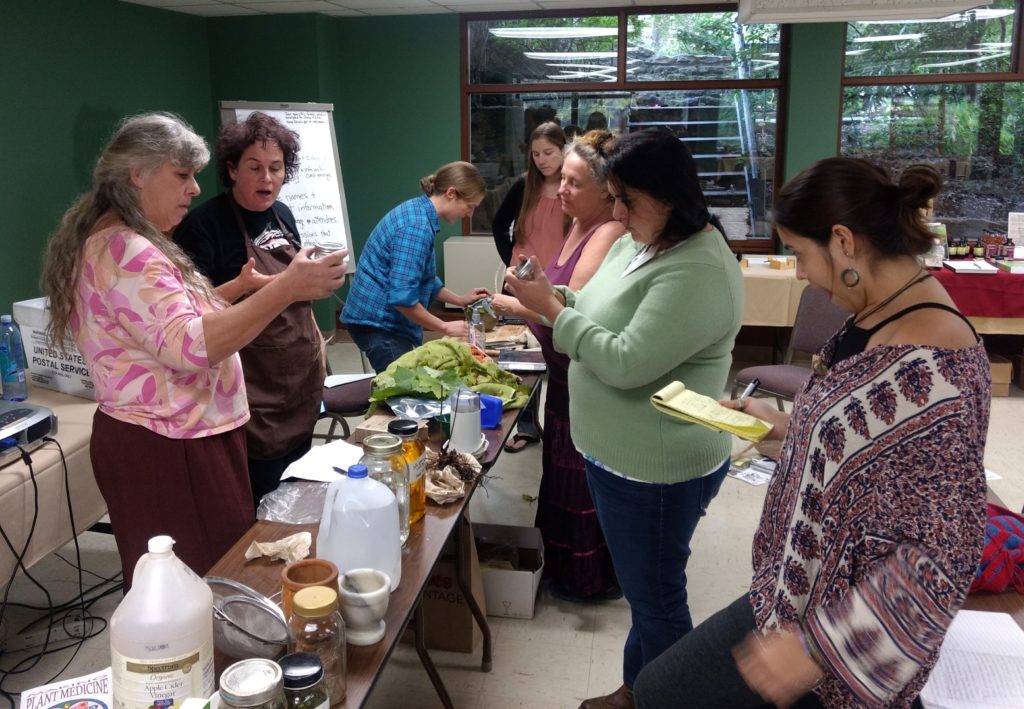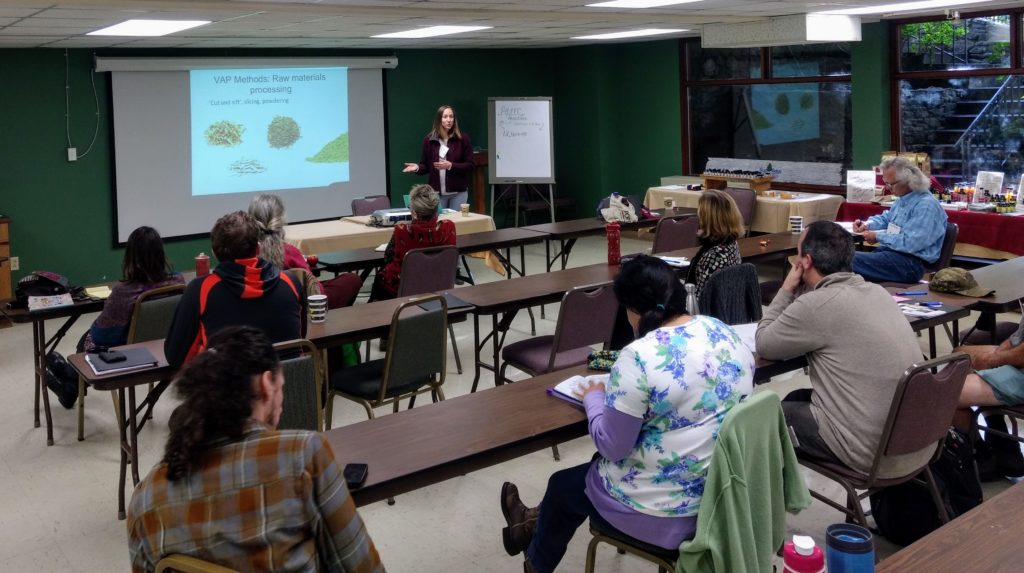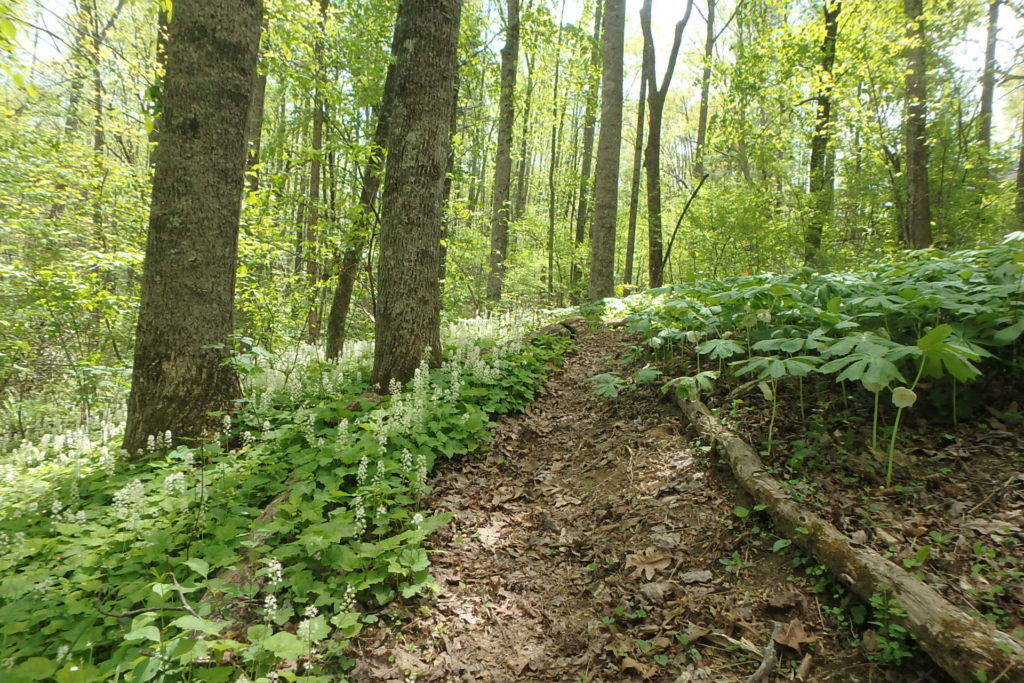More Opportunities to Learn About Growing Medicinal Herbs and Forest Farming
go.ncsu.edu/readext?492195
en Español / em Português
El inglés es el idioma de control de esta página. En la medida en que haya algún conflicto entre la traducción al inglés y la traducción, el inglés prevalece.
Al hacer clic en el enlace de traducción se activa un servicio de traducción gratuito para convertir la página al español. Al igual que con cualquier traducción por Internet, la conversión no es sensible al contexto y puede que no traduzca el texto en su significado original. NC State Extension no garantiza la exactitud del texto traducido. Por favor, tenga en cuenta que algunas aplicaciones y/o servicios pueden no funcionar como se espera cuando se traducen.
Português
Inglês é o idioma de controle desta página. Na medida que haja algum conflito entre o texto original em Inglês e a tradução, o Inglês prevalece.
Ao clicar no link de tradução, um serviço gratuito de tradução será ativado para converter a página para o Português. Como em qualquer tradução pela internet, a conversão não é sensivel ao contexto e pode não ocorrer a tradução para o significado orginal. O serviço de Extensão da Carolina do Norte (NC State Extension) não garante a exatidão do texto traduzido. Por favor, observe que algumas funções ou serviços podem não funcionar como esperado após a tradução.
English
English is the controlling language of this page. To the extent there is any conflict between the English text and the translation, English controls.
Clicking on the translation link activates a free translation service to convert the page to Spanish. As with any Internet translation, the conversion is not context-sensitive and may not translate the text to its original meaning. NC State Extension does not guarantee the accuracy of the translated text. Please note that some applications and/or services may not function as expected when translated.
Collapse ▲10/25/2022 – This is an old post of a recap of a wonderful workshop. The Appalachian Beginning Forest Farmer Coalition is still going strong and we are offering many workshop opportunities throughout the Coalition’s region. Check it out!
10/23/2017 – This weekend we had a wonderful two-and-a-half day workshop on Value-Added Forest Farming. It was held at the beautiful Montreat Conference Center in Black Mountain, NC. The workshop was organized by the Appalachian Beginning Forest Farmer Coalition; a multi-year, multi-organization project we are partners on. It was a small group event which allowed for lots of discussion and one-on-one time. We learned about tincture making, oil distillation, marketing, rules and regulations, food safety, value-added products, and more. We heard from successful growers and small manufacturers. It was an amazing event and many of the attendees asked, “when will the next event be held?” And after I posted about our event on Facebook, I got many comments saying “wish I had been there”, “didn’t know about this one”, and “when are you going to do it again”?
So, take note. There are several more opportunities coming up in the near future for events that you might want to attend. At the Carolina Farm Stewardship Association, Sustainable Agriculture Conference in Durham on November 3-5, 2018, we will be holding two medicinal herb related events. The first will be a day long Farming with Medicinal Herbs workshop on Friday, November 3. The workshop will be taught by Jeanine Davis, North Carolina State University, Department of Horticultural Science Associate Professor and Extension Specialist; Margaret Bloomquist, North Carolina State University, Department of Horticultural Science Research Assistant; Suki Roth, Herb Haven Herbalist; Lea Clayton, RiverSong Farm and GreenHeart Community Supported Apothecary Herbalist; and Sunshine Dawson, Maple Spring Gardens Herb Grower and Herbalist. The program will run from 8:30 a.m. – 5:30 p.m. and costs $85 for CFSA members, $100 for non-members. Here is the program description: Growing medicinal herbs commercially is very different from producing vegetables, fruit, and row crops. To be successful requires an understanding of how an herbalist approaches the plants they use. Join us for this special workshop taught by two herbalists, a successful commercial grower, and university researchers/extension personnel with decades of experience working with the industry. Topics to be covered include an in-depth overview of three medicinal herbs, value-added products you can make, a grower’s real life experiences, all aspects of production, GAPs, and selling your products. Lunch is included.
On Saturday November 4th at that same event, Margaret Bloomquist and Jeanine Davis of the NC Alternative Crops and Organics Program at NC State will be offering a workshop on Forest Farming from 9:45 to 12:15. In this workshop, we will cover the basics of growing medicinal herbs, ramps, and mushrooms in your woods. Marketing, economics, challenges, opportunities, resources, and networks will be described and discussed. We will complete the morning with a hands-on propagation workshop and everyone will get to take home a plant or two.
Looking forward to seeing you at one or both of these events!





